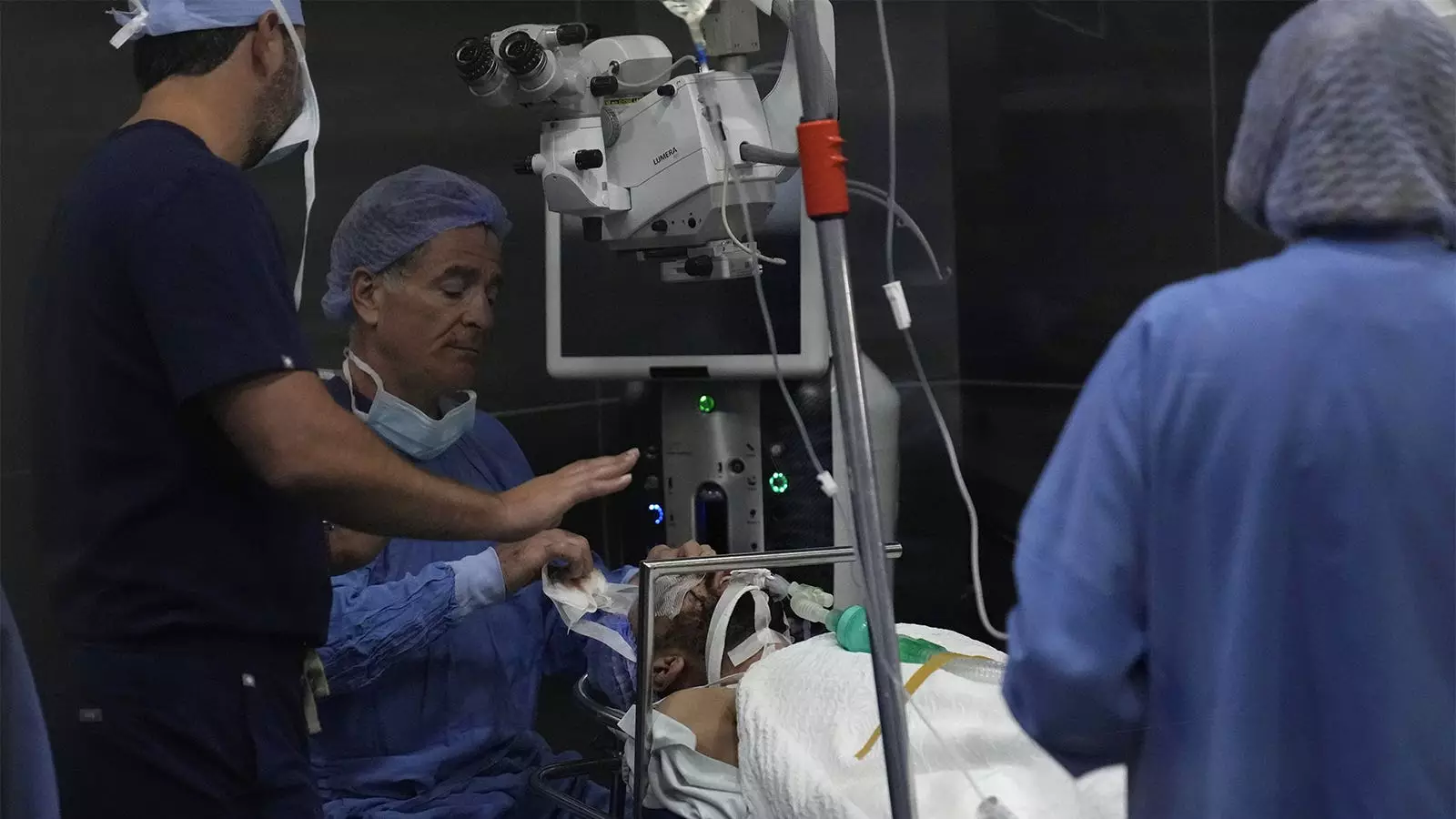Lebanon, a country marked by its rich history and tumultuous past, is once again thrust into the depths of tragedy. Recent devastating explosions have left a profound impact, particularly on ophthalmologist Elias Jaradeh, who finds himself at the heart of this crisis. The catastrophe unfolded when an overwhelming number of pagers and walkie-talkies, primarily used by local militant groups, detonated collectively, stealing not only lives but also the precious gift of sight for many.
In an unprecedented surge of patient influx, Dr. Jaradeh has been tirelessly working for nearly a week, grappling with the aftermath of these terrifying blasts. His days blend into nights filled with surgeries, operating on patients whose eyes have suffered unimaginable injuries. With only two hours of sleep, he persists, driven by a sense of duty to help those who may never reclaim their vision. The horrifying reality of his work has forced him to confront the fragility of life itself. Each operation is not just a medical procedure but a profound emotional engagement as he witnesses the grim results of such violence.
The statistics are staggering. At least 39 individuals lost their lives, while approximately 3,000 more suffered injuries of varying degrees, many resulting in permanent disabilities. This recent incident recalls Lebanon’s tortured history, where civilians often find themselves caught in the crossfire, resulting in a bleak cycle of violence and despair. This attack, reportedly linked to the ongoing conflict involving Hezbollah and foreign powers, illustrates how deeply intertwined personal tragedies are with national conflicts.
Dr. Jaradeh’s hospital became a poignant scene of suffering. He recounts processing waves of young men, children, and women—all bearing the consequences of explosive blasts that disregarded age and innocence. As shrapnel lodged in their eyes, the medical community was overwhelmed, confronting not only the physical injuries but the deep emotional scars left behind. Lebanese medical professionals, often battle-hardened by experiences in previous conflicts, find themselves facing a crisis they have never encountered before in such magnitude.
The despair extends beyond the operating room; it speaks to a broader societal implication. Communities in Lebanon are left to deal with the aftermath of such violence, raising questions of future safety and security. Families are plunged into uncertainty, as the cost of living and healthcare rises, and the ability to cope with trauma erodes.
Four years ago, a catastrophic explosion at the Beirut port left a lasting scar on Lebanon’s psyche, and the current situation echoes that tragedy. While the port explosion was enormous and destructive, the latest attacks display a concentrated assault on individuals, particularly targeting their capacity to see. Such repeated occurrences of violence against civilians challenge the notion of safety and justice in a country marked by political unrest and militarization.
Dr. Jaradeh’s comments about the emotional toll of his work underline a crucial aspect of medical practice amidst conflict. He acknowledges the difficulty of maintaining a professional distance when faced with overwhelming trauma and loss. For Jaradeh, the challenge lies not only in treating physical injuries but in confronting the emotional complexities that accompany such disasters. His words resonate with a broader truth: that medicine in conflict zones involves more than healing the body; it involves navigating the intertwined realms of human suffering, societal unrest, and the relentless pursuit of hope.
As Lebanon faces yet another chapter of violence, the role of medical professionals like Dr. Elias Jaradeh becomes increasingly vital. They stand at the front lines, not merely as healers but as witnesses to the harsh realities of life in a conflict-ridden country. The battle to restore sight is emblematic of a larger struggle for recovery and resilience: a fight against the forces that threaten to erase the very fabric of humanity from the landscape of Lebanon. In the midst of chaos, it is the unwavering commitment of individuals like Dr. Jaradeh that shines a light of hope for a nation yearning for peace and healing.



Leave a Reply